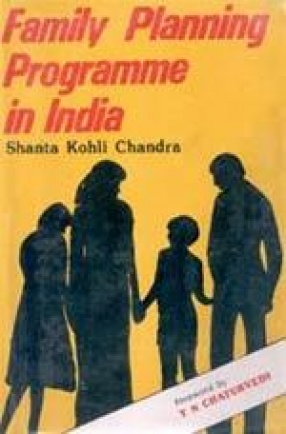Population growth is a global problem. In India the problem is more acute because the country is very big and the population very large. The period of seventies chosen for the present study has significance because it witnessed tremendous achievements as well as divergent policy directives it is beneficial to evaluate the performance after short intervals so that policies, implementation strategies and adaptation techniques can have data base which would help in their reframing innovation and remoulding respectively. The present study by taking the help of microanalysis in the broader perspective of the programme tries to find out where the programme stands. In some parts of India the programme is a success whereas in others it has not shown much progress. The study of the States in the light of social status and programme in outs tries to bring out the importance of social status. The programme needs to betaken with greater vigour with other development programme is a success whereas in others it has not shown much progress. The study of the States of the country could be enhanced for better achievements. The field study clearly shows the pro-family planning attitude of the people and index knowledge to be favourable. The present need of the programme is to take people along with the programme. The programme needs to be made a “people need of the programme is to take people along with the programme. The programme needs to be made a “people’s movement.†Once the people can feel the pinch of the population growth their cooperation would automatically give impetus to the movement.
Family Planning Programme in india: Its Impact in Rural and Urban Area/1970-1980
In stock
Free & Quick Delivery Worldwide
reviews
Bibliographic information
Title
Family Planning Programme in india: Its Impact in Rural and Urban Area/1970-1980
Author
Edition
1st ed.
Publisher
ISBN
8170990238
Length
xiv+265p., Tables; Appendices; Bibliography; Index; 22cm.
Subjects







There are no reviews yet.